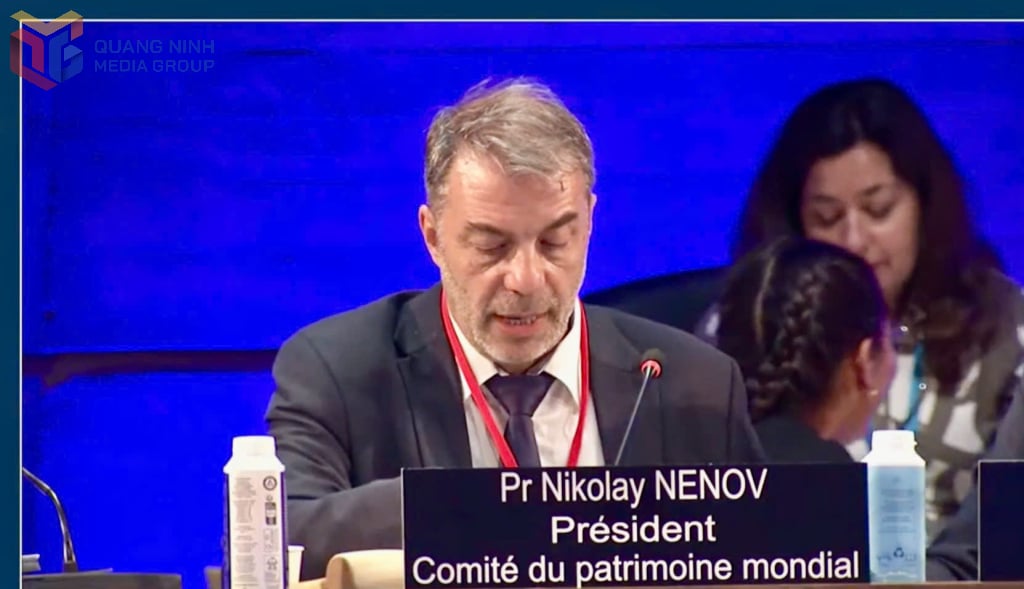
In the joyful atmosphere at the Session, leaders and experts of UNESCO member countries warmly congratulated the Vietnamese delegation on the occasion of the Yen Tu - Vinh Nghiem - Con Son - Kiep Bac Monuments and Landscape Complex becoming a World Cultural Heritage.
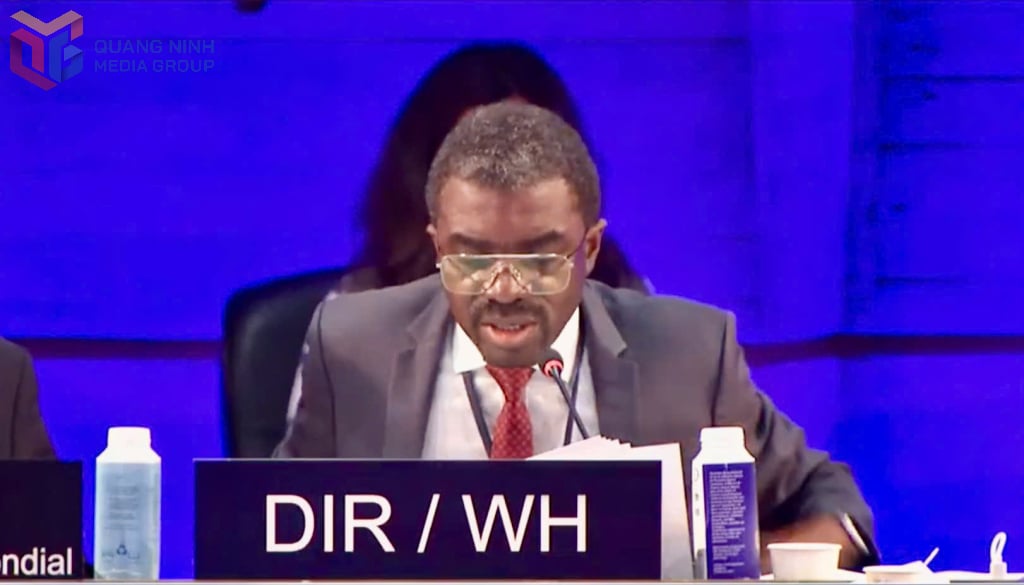
The Yen Tu - Vinh Nghiem - Con Son, Kiep Bac relic and scenic complex, with Truc Lam Buddhism as its core, was founded in the 13th century by the Tran Dynasty kings, especially the role of Buddhist Emperor Tran Nhan Tong. Truc Lam Buddhism has created many values, making special and sustainable contributions to the cultural and spiritual heritage of humanity.
Originating from the sacred Yen Tu mountain landscape, Truc Lam Buddhism represents a philosophical system and the spirit of tolerance and altruism of Buddhism. Truc Lam Buddhism is also a testament to the harmonious combination of Mahayana Buddhism with Confucian ethics, Taoist cosmology and indigenous beliefs of Vietnam. The ideological and cultural values of Truc Lam Buddhism on the spirit of reconciliation, harmony and peace are completely consistent with UNESCO's basic goal of maintaining and enriching the common values of humanity: Education, building a culture of peace; the spirit of autonomy, harmonious combination between humans and the natural world, respecting the laws of nature.
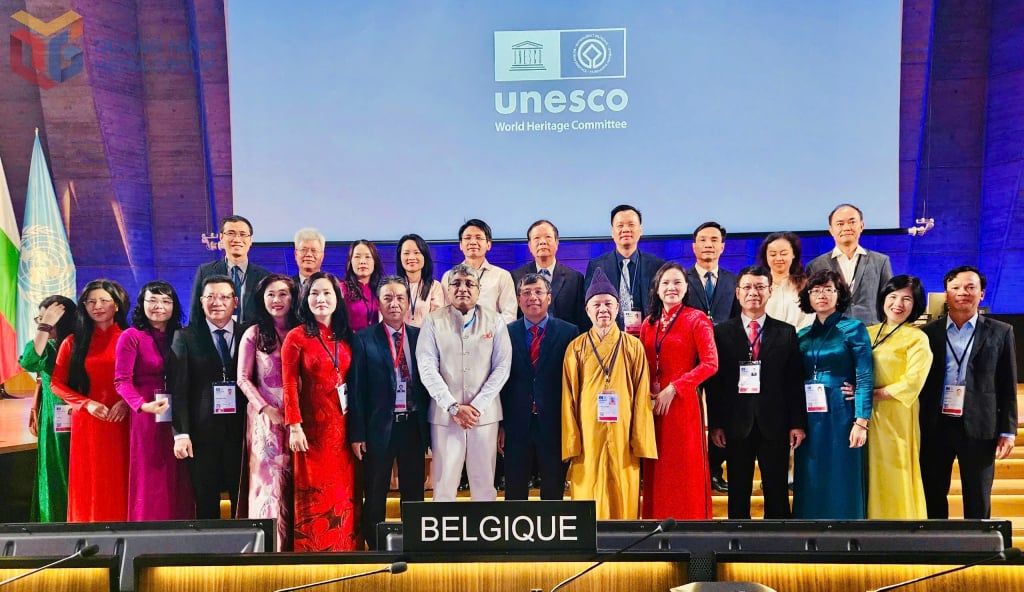
Through temples, hermitages, pilgrimage routes, stone steles, woodblocks and other carefully preserved relics, distributed over a large area from Yen Tu to Vinh Nghiem and Con Son - Kiep Bac, the heritage fully reflects the stages of development of Truc Lam Buddhism: from its establishment and institutionalization to its revival and continued spread of creative and humanistic values. These relic sites were formed many centuries ago, always showing continued development, playing the role of religious and spiritual cultural centers, and pilgrimage destinations for millions of tourists each year.
The Yen Tu - Vinh Nghiem - Con Son - Kiep Bac relic and scenic complex was recognized by UNESCO as a World Cultural Heritage according to criteria (iii) and (vi), as evidence of the unique combination between the state, religion and people in the formation of the Vietnamese national identity; along with the sacred landscape formed through frequent and close interactions with nature and an ethical system based on the love of peace, self-cultivation, tolerance, kindness and harmony between humans and nature. Specifically:
Criterion (iii): The harmonious combination of State, religion and people's community developed from the mountainous homeland of Yen Tu has created a unique cultural tradition of global significance, shaping national identity, promoting peace and security in the wider region.
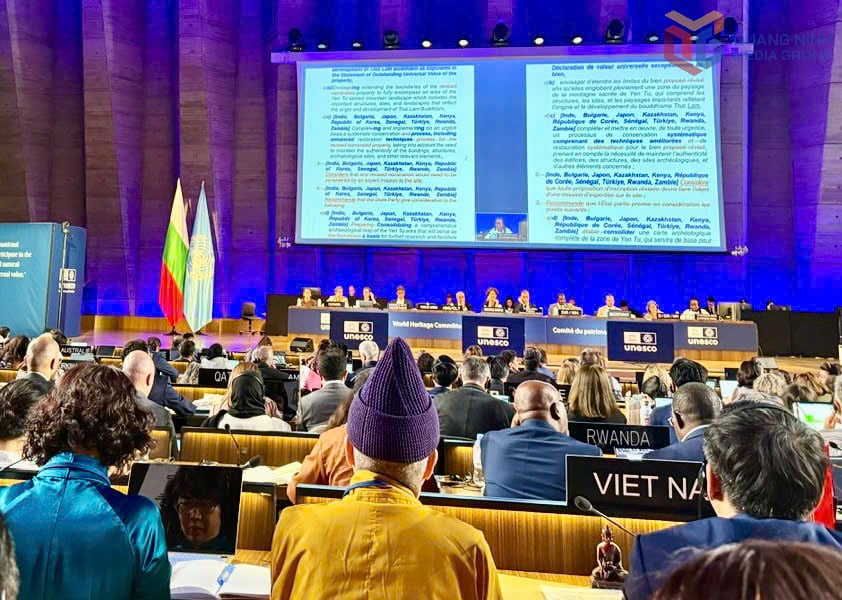
The relic and scenic complex of Yen Tu - Vinh Nghiem - Con Son, Kiep Bac is a special testament to Truc Lam Buddhism, a unique Zen tradition of Vietnam founded in the 13th century by Tran kings, royals and wise monks, especially Buddhist Emperor Tran Nhan Tong, the only known monarch in Asia who voluntarily gave up the throne to become a monk, founding a Zen sect imbued with the philosophy of life and Vietnamese character. Truc Lam Buddhism integrates Mahayana teachings with the synthesis of Confucianism, Taoism and indigenous beliefs, creating a unique spiritual and philosophical identity. Truc Lam Buddhism has contributed to shaping The spiritual foundation of Dai Viet nation, creating the driving force for the rise of an independent, self-reliant nation, while promoting cultural dialogue and the spirit of peaceful friendship among nations. For centuries, the Yen Tu - Vinh Nghiem - Con Son, Kiep Bac relic and scenic complex has always played an important role in practicing, transmitting, spreading and creating culture. The spirit of tolerance and creativity of Truc Lam Buddhism has inspired and brought humanistic values to the domestic and international communities.
Criterion (vi): Truc Lam Buddhism is a globally significant example of how a religion, derived from many beliefs, originating and developing in its homeland of Yen Tu, has influenced secular society to promote a strong nation, ensuring peace and regional cooperation.
The Yen Tu - Vinh Nghiem - Con Son and Kiep Bac relic and scenic complex is directly related to the birth and spread of the creative and humanistic values of Truc Lam Buddhism. The continuous organization of rituals, festivals, propagation of Buddhism and pilgrimages to relic sites - both in Vietnam and international Truc Lam Buddhist organizations - proves the sustainable global relevance of the philosophy of life, life values, social community spirit, living in harmony with nature, love of peace and compassion.
With 12 clusters, relic sites, relic complexes and scenic spots of Yen Tu - Vinh Nghiem - Con Son, Kiep Bac fully demonstrate the tradition of Truc Lam Buddhism, from its establishment in the sacred mountain area of Yen Tu Mountain as evidenced by ancient temples, shrines, towers, archaeological relics, to the relics of Vinh Nghiem Pagoda and Con Son - Kiep Bac relic site and the systematization of philosophies expressed through steles, related relics and ritual practices. These relics provide a full representation of the history, spirit and geography of Truc Lam Zen Buddhism, demonstrating the process of formation, development, and sustainable relationship of tangible and intangible cultural values and documentary heritage in historical and cultural spaces.
The Yen Tu - Vinh Nghiem - Con Son, Kiep Bac relic and landscape complex includes a system of relics belonging to special national relics that have been ranked as national and special national relics by the Prime Minister, including: Yen Tu relic and landscape complex, Tran Dynasty relic site in Dong Trieu, Vinh Nghiem Pagoda, Bo Da Pagoda, Con Son - Kiep Bac relic site, An Phu - Kinh Chu - Nham Duong historical and scenic relics; relics ranked by the Ministry of Culture, Sports and Tourism (Thanh Mai Pagoda...) and relics, antiquities, national treasures, intangible cultural heritage, traditional festivals in the area... along with the landscape with the system of mountains and forests and the cultural space of Yen Tu - Vinh Nghiem - Con Son, Kiep Bac will be preserved, protected long-term, sustainably and promote their values in accordance with the provisions of the Law on Cultural Heritage and the 1972 UNESCO Convention on the Protection of World Cultural and Natural Heritage.
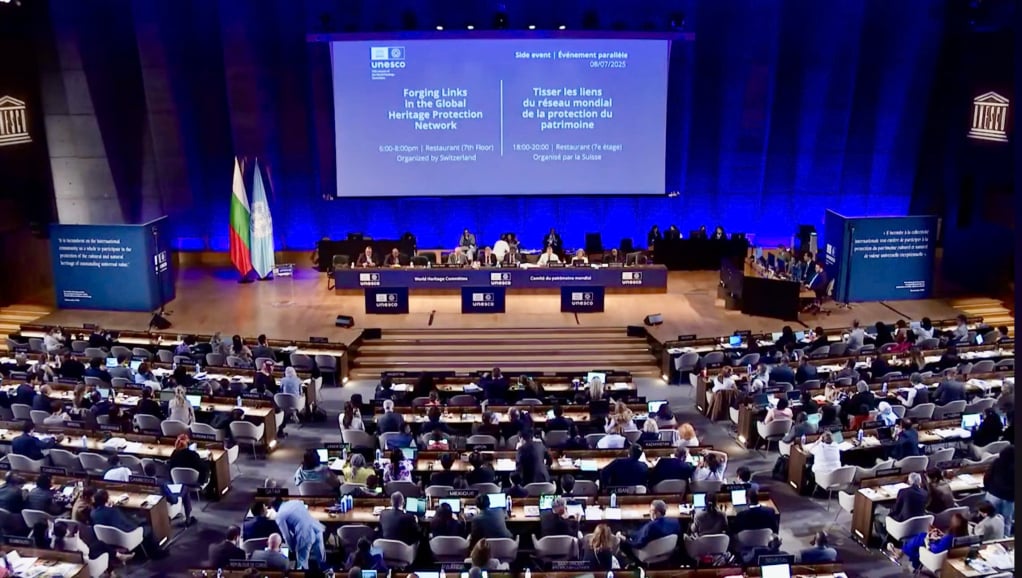
Particularly moved when the Yen Tu - Vinh Nghiem - Con Son, Kiep Bac relic complex was recognized by UNESCO as a World Heritage Site, Ms. Nguyen Thi Hanh - Vice Chairman of the People's Committee of Quang Ninh province, Deputy of the Steering Committee - Head of the Executive Committee for the construction of the Yen Tu - Vinh Nghiem - Con Son, Kiep Bac dossier said : The dossier was carefully and methodically built by Quang Ninh province with high quality. After many years of efforts, the Heritage has been officially recognized internationally. Quang Ninh province will continue to develop and implement projects to preserve, restore and promote the value of the Heritage, in order to ensure sustainability and widely spread the noble values of the World Heritage. The moment of being listed is a great pride not only for the authorities and people of the three localities of Quang Ninh, Bac Ninh, Hai Phong, but also for the people of the whole country. The complex of relics and scenic spots of Yen Tu - Vinh Nghiem - Con Son, Kiep Bac is the first chain of World Heritage Sites, and at the same time the second inter-provincial Heritage Site among the nine World Heritage Sites of Vietnam recognized by UNESCO.
In their response speeches, Permanent Deputy Minister of Foreign Affairs Nguyen Minh Vu and Deputy Minister of Culture, Sports and Tourism, Dr. Architect Hoang Dao Cuong emphasized : To achieve this success, for many years, the system of relics and intangible cultural heritages of localities has received special attention from the Ministry of Culture, Sports and Tourism, the Ministry of Foreign Affairs and the provinces through the implementation of many projects to preserve and restore relic works; research, identify values to prepare nomination and registration dossiers domestically and internationally; contribute to protecting the outstanding global values of heritage sites, creating sustainable livelihoods , improving the cultural and spiritual life of the local communities and people. At the same time, we are pleased to inform the Session that Vietnam will continue to implement activities to protect and promote the values of World Heritage in a sustainable manner, implementing a model of good management of World Heritages in Vietnam . That spirit was demonstrated by the fact that on November 23, 2024, the National Assembly of the Socialist Republic of Vietnam passed the Law on Cultural Heritage 2024, along with documents guiding its implementation (including the internalization of UNESCO's sustainable development perspectives in the spirit of the World Heritage Convention, providing regulations on heritage impact assessment in the context of World Heritage, developing a World Heritage Management and Protection Plan; linking the conservation of monuments with the protection of intangible cultural heritage at World Heritage sites, with the goal of serving local communities better and better...).
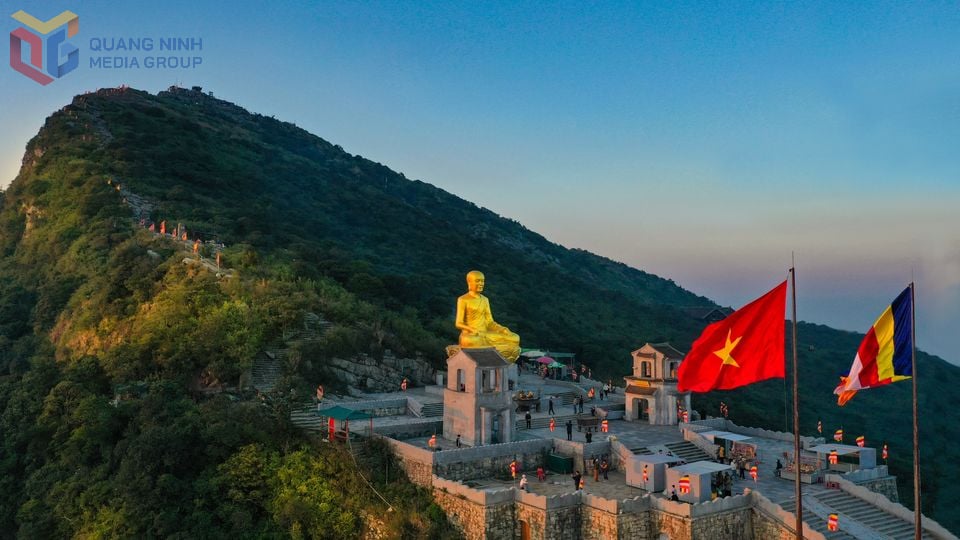
The success of the Yen Tu - Vinh Nghiem - Con Son and Kiep Bac Monuments and Landscape Complex being listed by UNESCO as a World Heritage Site is the result of persistent efforts, high consensus and close and effective coordination between all levels, sectors, localities, domestic and international organizations .
In which, the most prominent are: the great efforts and determination of the localities of Quang Ninh, Hai Phong, Bac Ninh, especially the leading role of the People's Committee of Quang Ninh province throughout the process of researching and preparing heritage dossiers (from 2013 to today's success) ; is the result of active coordination between 3 localities with central agencies such as: Ministry of Culture, Sports and Tourism, Ministry of Foreign Affairs, National Cultural Heritage Council, with the in-depth professional participation of scientists, experts at home and abroad, Vietnam World Heritage Committee, Vietnam Buddhist Sangha, and practical support from media agencies and businesses.
The success of the heritage dossier has an important role of the Vietnam National Commission for UNESCO, the Permanent Delegation of Vietnam to UNESCO in Paris - France in coordinating information, promptly connecting and working with specialized agencies of UNESCO, ICOMOS, IUCN, the World Heritage Committee, experts, and gaining support and consensus from 21 member countries of the UNESCO World Heritage Committee.
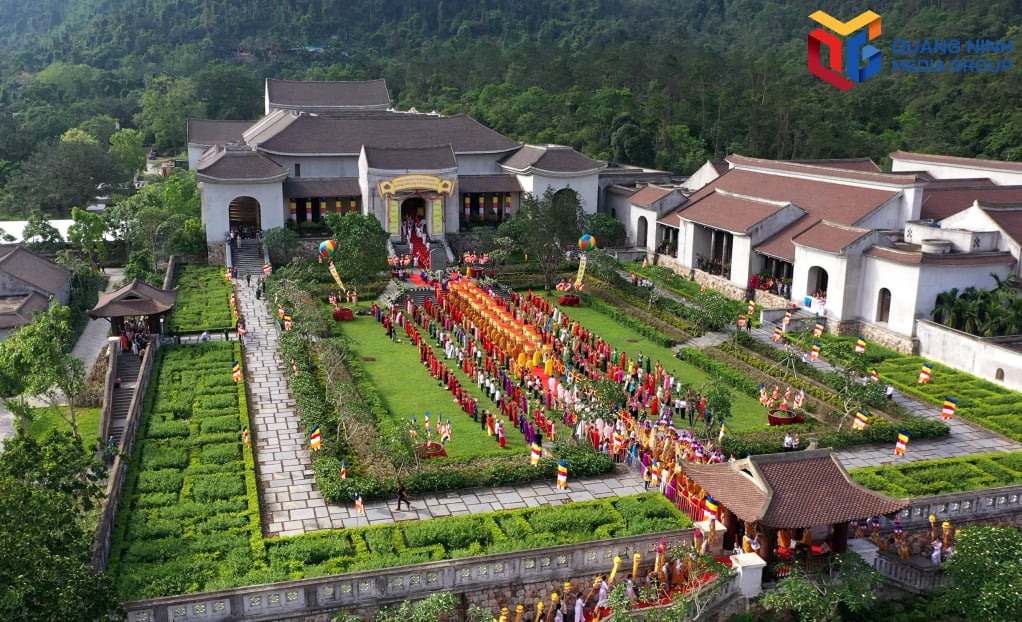
This success also has a significant contribution from the UNESCO Representative Office in Vietnam, along with the active professional support of international experts and ICOMOS, especially in the process of completing the dossier, explaining and implementing the recommendations.
In particular, this important success is a testament to the attention and close direction of the Party and State leaders, especially General Secretary To Lam, Prime Minister Pham Minh Chinh, Deputy Prime Ministers, Minister of Foreign Affairs, Minister of Culture, Sports and Tourism, Chairman of the Vietnam National Commission for UNESCO, Deputy Ministers and specialized units under the Ministry of Culture, Sports and Tourism in the entire process of preparing, mobilizing and successfully protecting this meaningful and valuable dossier, so that the outstanding global values will be the common cultural heritage of humanity.
Source: https://baoquangninh.vn/quan-the-di-tich-va-danh-thang-yen-tu-vinh-nghiem-con-son-kiep-bac-duoc-unesco-ghi-vao-danh-muc-di-s-3366471.html


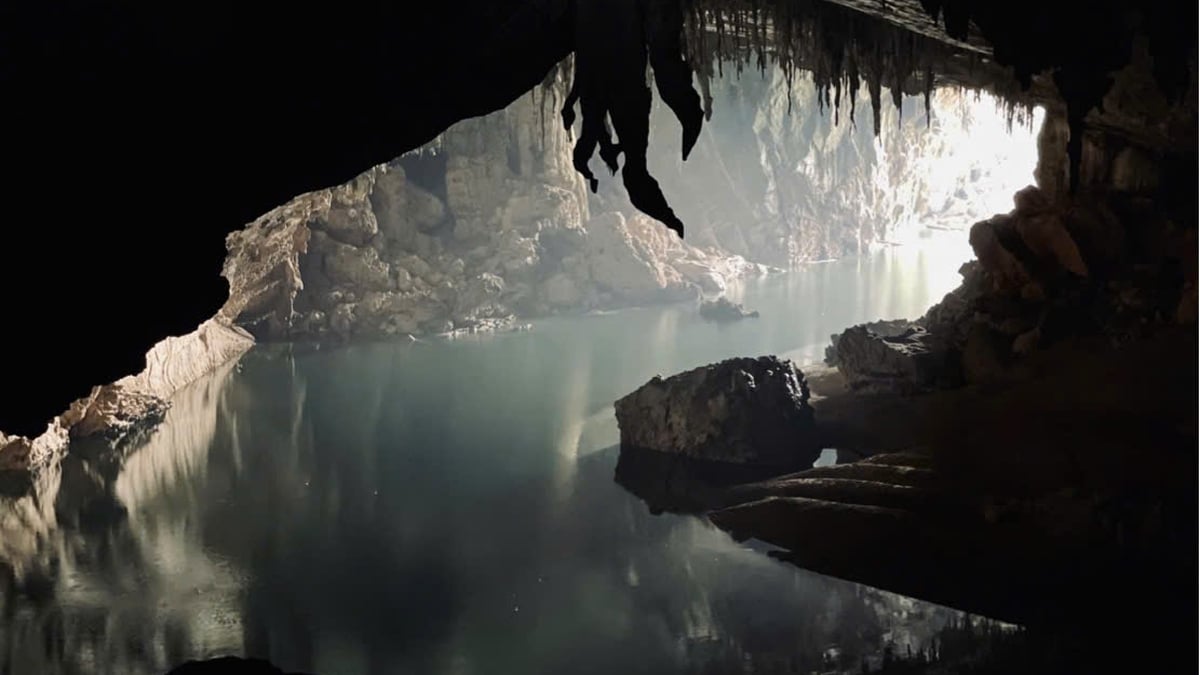
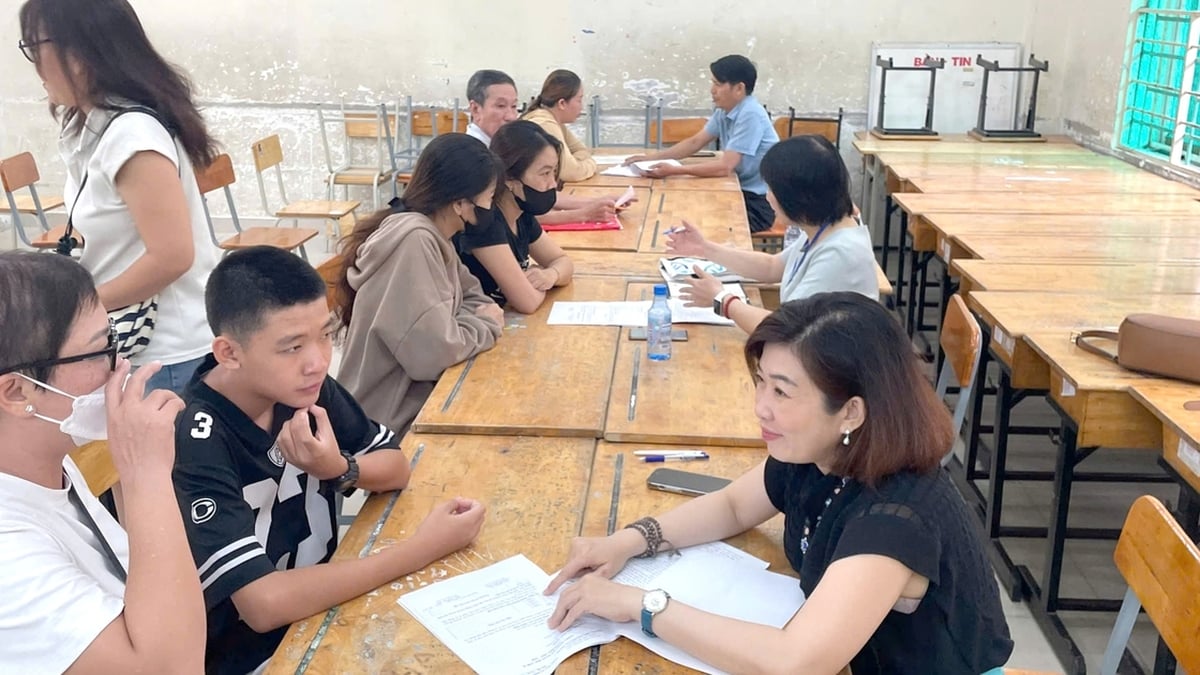
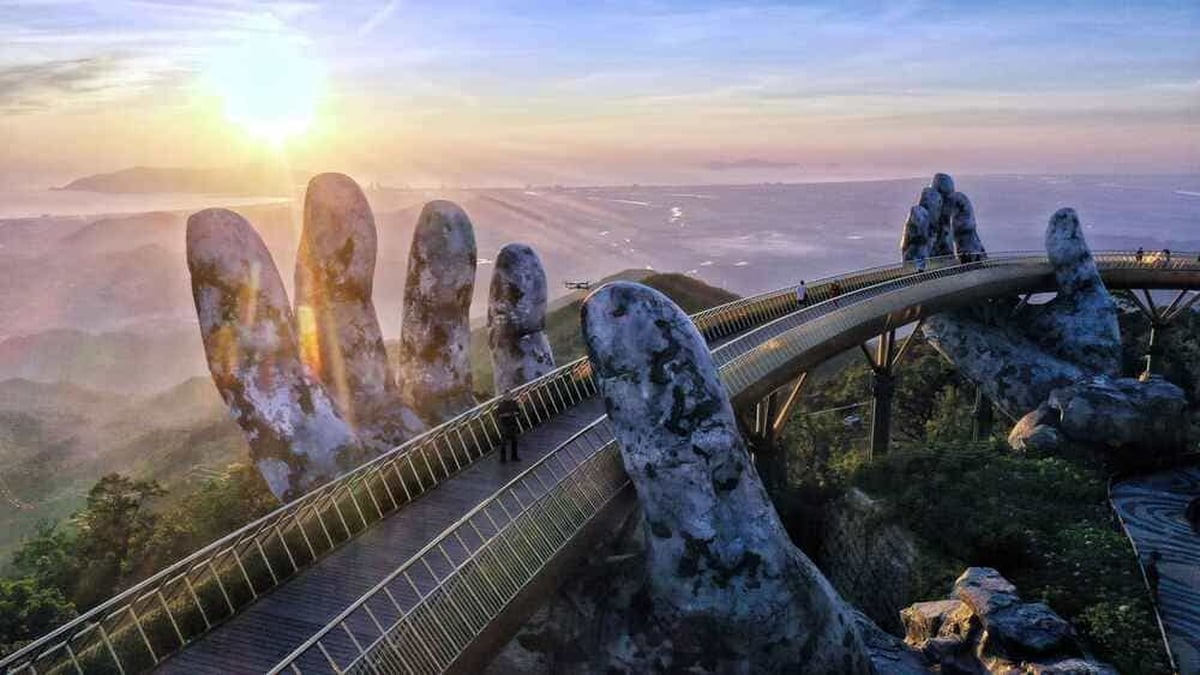

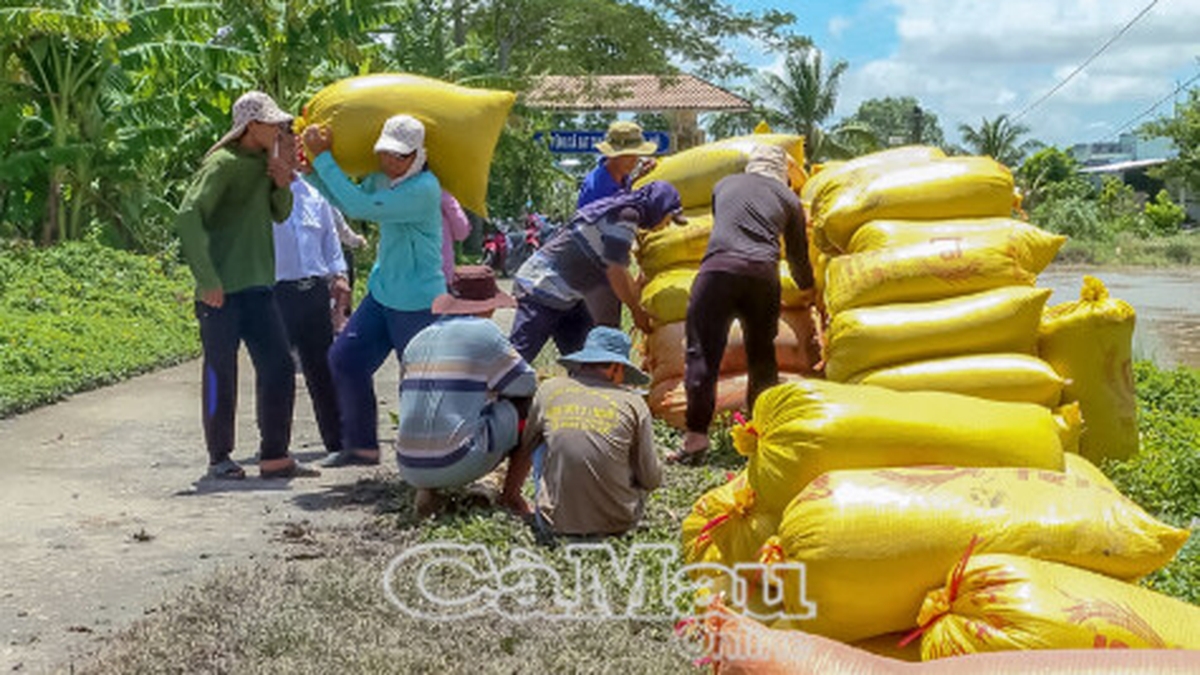
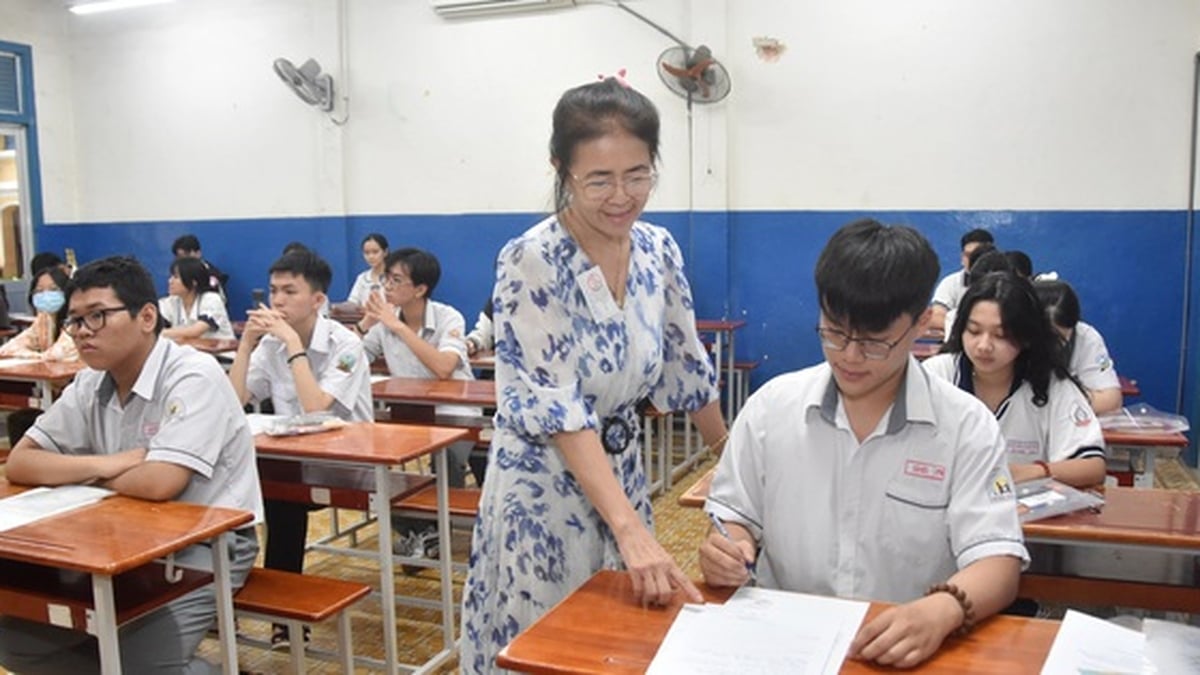
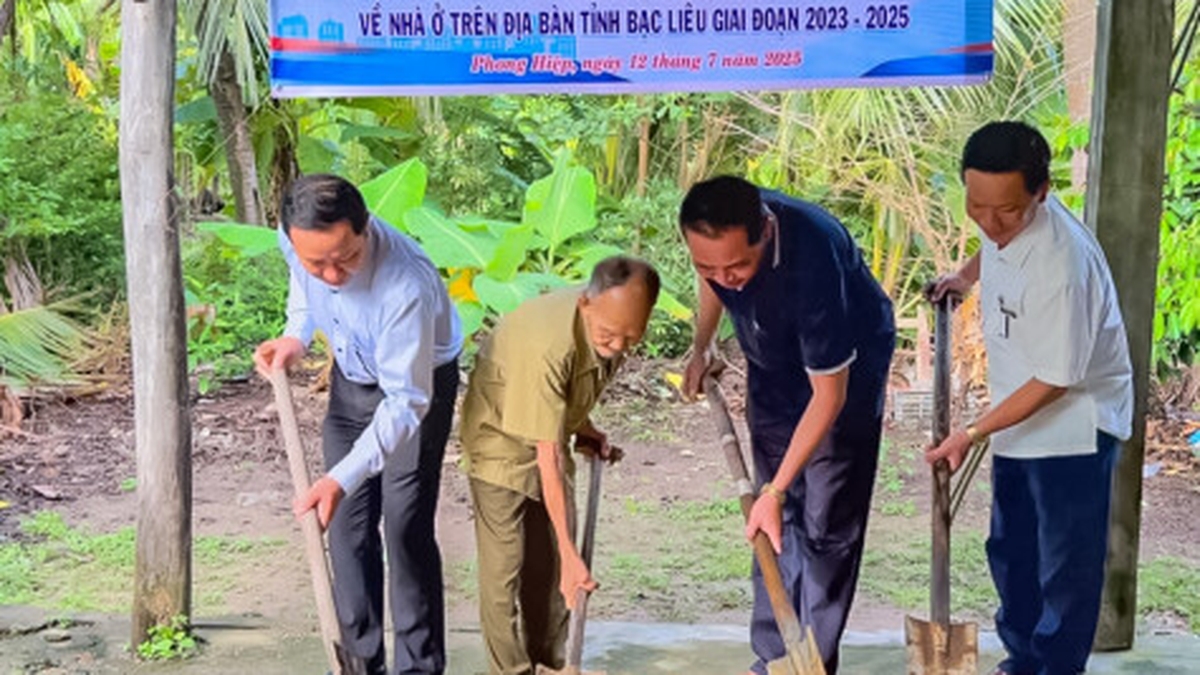
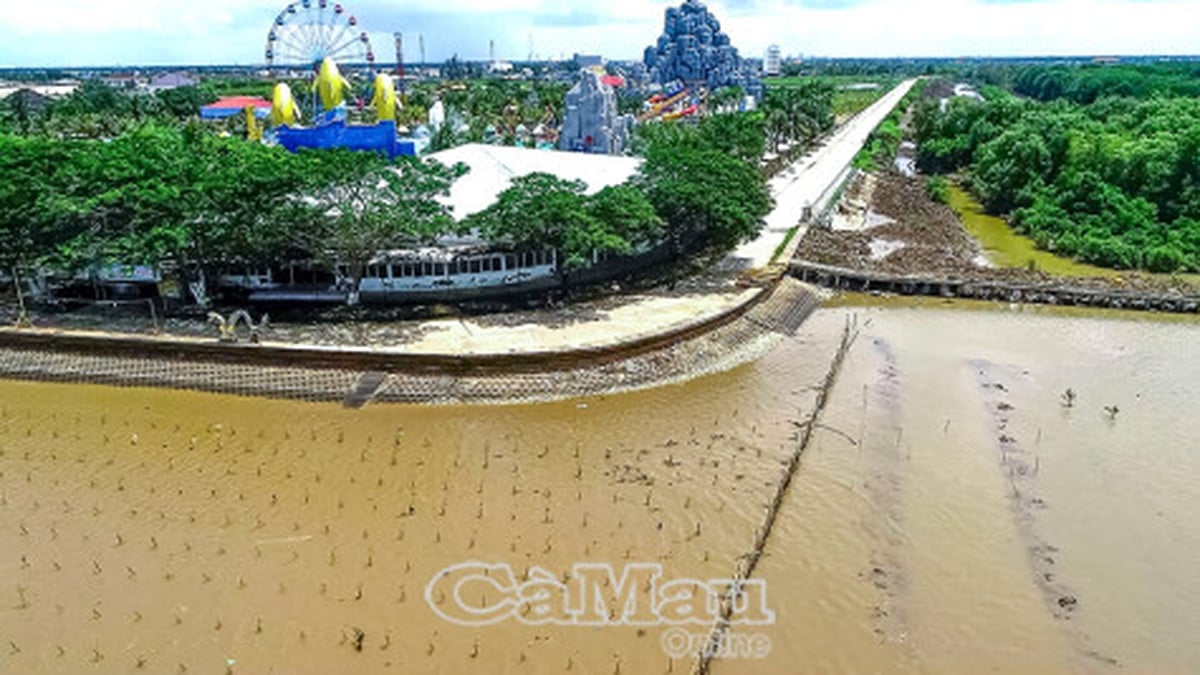
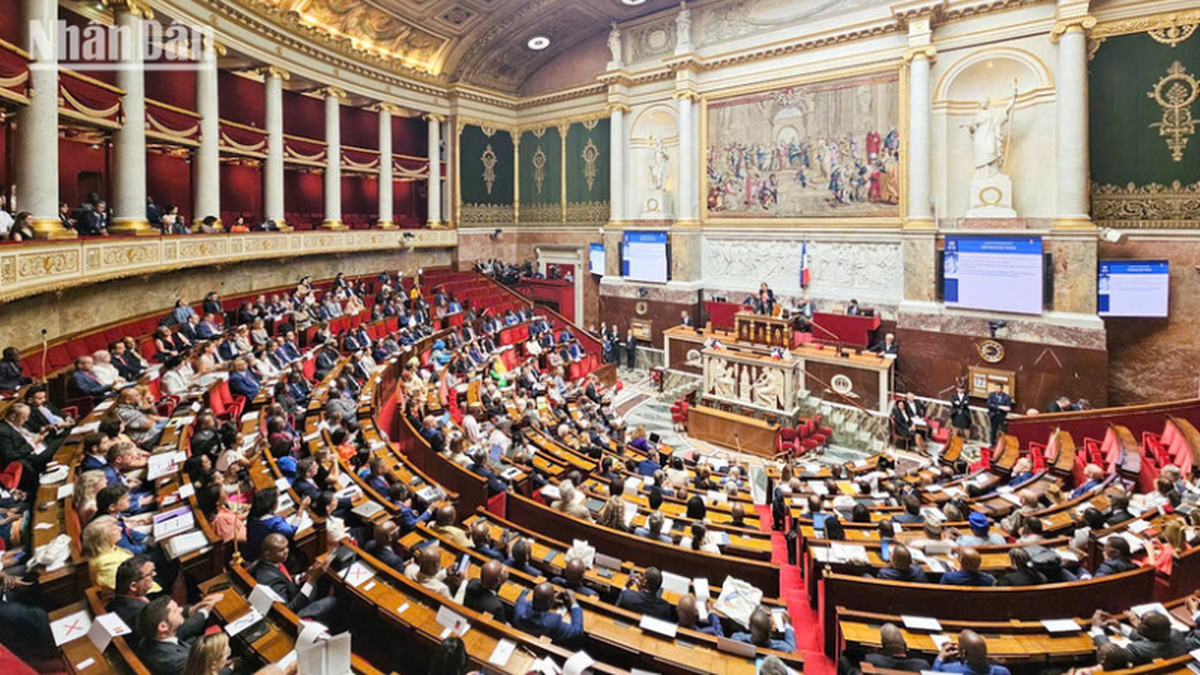
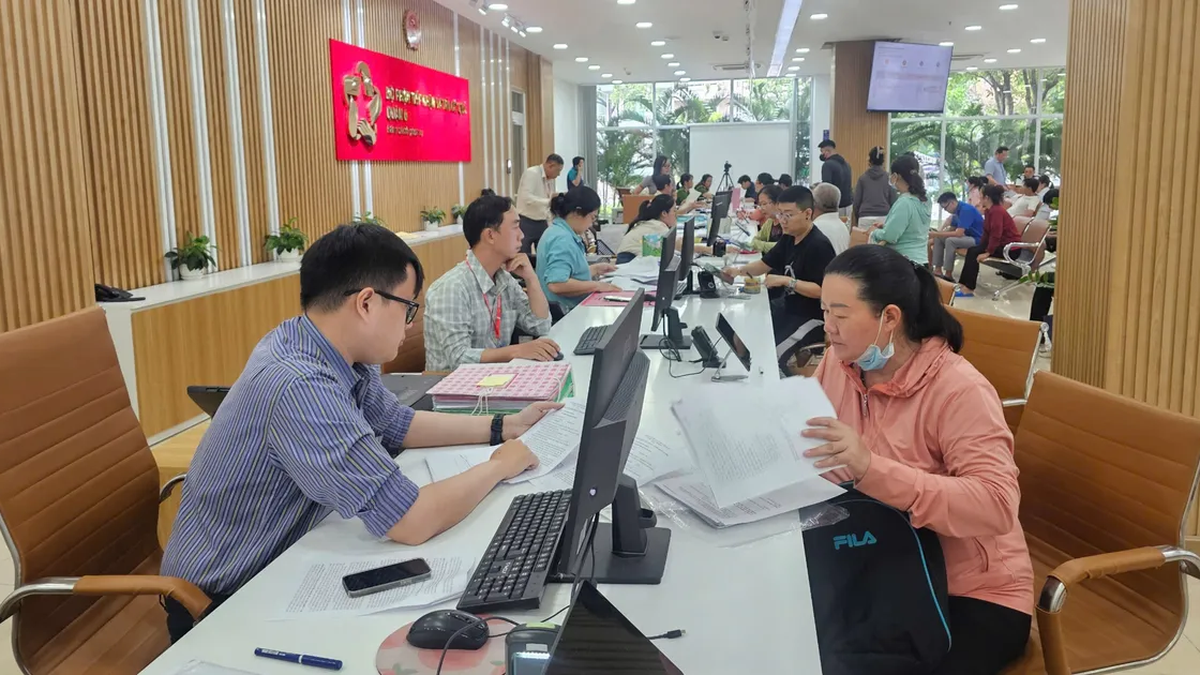










































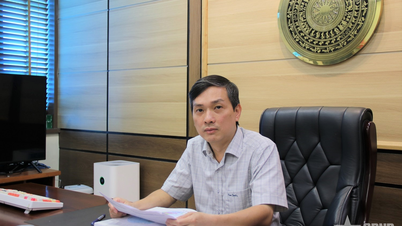













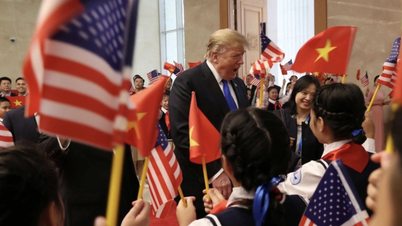


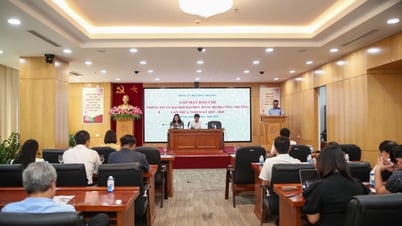

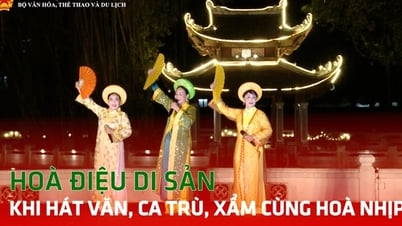


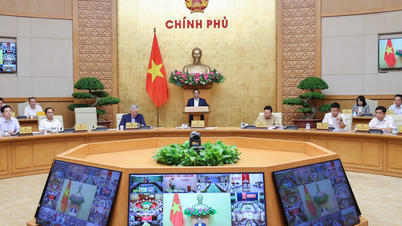
























Comment (0)